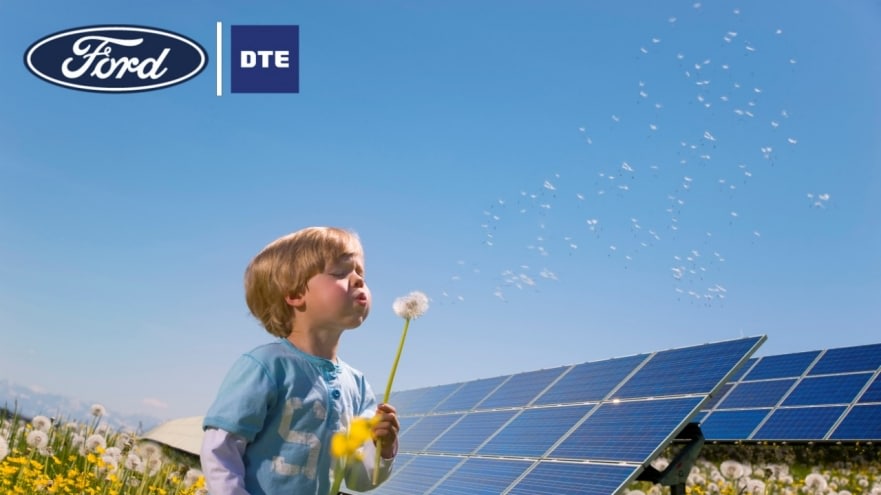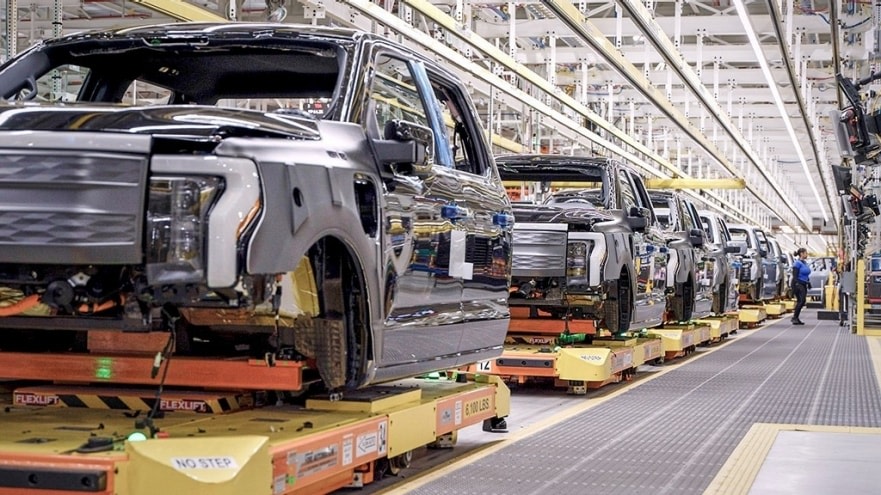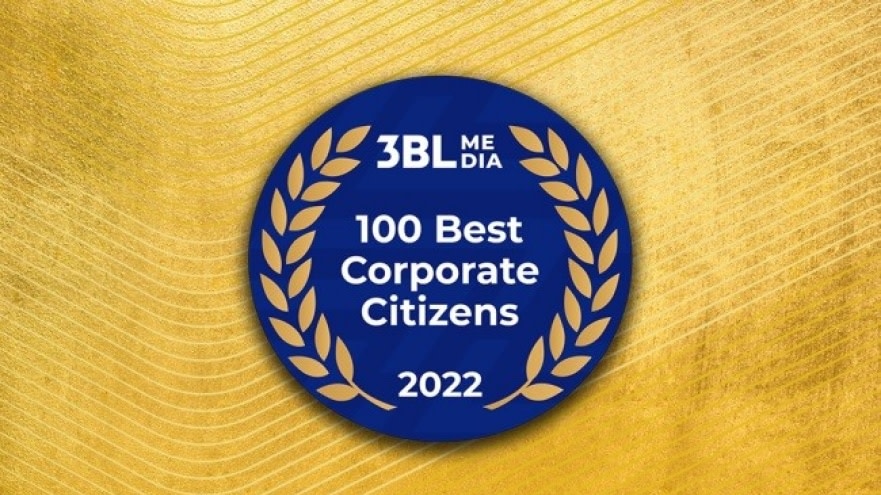Ford Publishes 2023 Sustainability Report
Ford Motor Co

Ford has published its 2023 Integrated Sustainability and Financial Report, which outlines the progress the company has made towards its goal of establishing a transportation future that is more sustainable, inclusive, and equitable.
The report builds on Ford's more than two decades of sustainability reporting leadership and presents fresh data demonstrating that the company is on track to achieve carbon neutrality in its vehicles, operations, and supply chain no later than 2050.
Additionally, the report showcases advancements in projects aligned with the company's commitment to responsible sourcing raw materials and improving the transparency of its electric vehicle and battery supply chain.
Bill Ford, the Executive Chair, stated that creating value for customers, employees, and communities while taking care of the planet is crucial for the long-term success of any business. Ford is committed to transparency regarding its progress and opportunities for improvement as the company undertakes a major transformation to lead the electric and connected era of transportation. Ford is optimistic about the future and looks forward to making carbon-neutral transportation a reality.
Cynthia Williams, the Global Director of Sustainability, Homologation, and Compliance at Ford, reported that Ford has made significant strides towards carbon neutrality in 2022. These advancements include the introduction of new exciting EVs, facility upgrades, investments in carbon-free and renewable electricity, and the use of purchasing power to help scale low-carbon materials. Additionally, Ford is creating new visibility and accountability for a global EV and battery supply chain that aligns with its values. According to Williams, these efforts will aid in creating a more sustainable, equitable, and inclusive transportation future.
Electric Vehicle Revolution
Ford is investing more than $50 billion from 2022 to 2026 to develop and manufacture electric vehicles and batteries worldwide. The company is on track to achieve its goal of producing 600,000 EVs annually by the end of 2023 and over 2 million by the end of 2026. By 2030, half of Ford's global vehicle sales volume is projected to be electric.
The report showcases the impact of this approach, including the reduction in carbon dioxide emissions from driving a Ford EV. Depending on the model, driving a Ford EV can lower lifetime carbon dioxide emissions by up to 60 per cent when charged with U.S. grid-average electricity compared to driving a comparable internal combustion engine vehicle.
For the F-150® Lightning®, this lifetime carbon dioxide reduction is equivalent to the carbon dioxide saved by not using approximately 8,777 gallons of gasoline. The F-150® Lightning® became the best-selling electric pickup in the United States in June 2022, during its first full month of dealer retail sales.
Carbon Neutrality
Ford's commitment to carbon neutrality goes beyond reducing tailpipe emissions from its vehicles. The company also focuses on reducing emissions from its facilities, processes, and electricity that support its operations and global supply chain.
Since 2017, Ford has reduced Scopes 1 and 2 emissions by 35.4 per cent, accounting for direct emissions from its operations and indirect emissions from energy purchases. The company invested over $26 million in facility upgrades to improve energy efficiency and conservation across its facilities and manufacturing processes, leading to a 40 per cent reduction in absolute manufacturing greenhouse gas emissions since 2017.
Ford also made progress in transitioning to carbon-free electricity usage, incorporating 60.6 per cent carbon-free electricity into its global operations, including all purchased electricity for manufacturing in Europe and Mexico. Globally, 42.6 per cent was renewable electricity.
Between 2019 and 2022, Ford reduced its overall Scope 3 emissions, which include emissions from suppliers, products, and other non-facility sources, by an estimated 23 per cent. Ford was the first American automaker to include its global supply chain on the Manufacture 2030 platform, inviting 3,000 Tier 1 supplier sites to participate in the programme designed to help them measure, mitigate, and reduce emissions. In 2023, Ford plans to invite additional Tier 1 and indirect suppliers to participate in Manufacture 2030.
Building a Responsible EV Supply Chain
Ford is committed to ensuring that its global supply chain is environmentally and socially responsible. To achieve this, the company is taking several steps to increase transparency, traceability, and due diligence in its new EV and battery supply chains, including securing raw materials directly from mining companies that align with Ford's corporate policy.
The company has initiated EV and battery supply chain mapping and auditing in 2021 to better understand the origins of raw materials in its EV supply chain and has conducted 30 supplier audits along the four critical mineral battery supply chains at all tiers of the mine site.
In early 2023, along with its suppliers, Ford underwent an audit of its nickel, lithium, and cobalt due diligence management systems and strengthened its corporate practices by introducing new environmental, social, and governance requirements into its sourcing agreements.
In addition, Ford works closely with its suppliers and third-party assurers to identify and address environmental and human rights issues in its supply chain against comprehensive criteria outlined in the company's Supplier Code of Conduct. The company also trained over 3,400 employees and suppliers in supply chain sustainability topics, including anti-corruption, fair labour, and environmental protection practices.
Helping Communities
Ford Motor Company Fund, the philanthropic arm of the company, collaborates with non-profit organisations and community leaders across over 40 countries worldwide to address the distinctive needs of various communities. In the year 2022, Ford and Ford Fund donated more than $64 million in charitable contributions towards partnerships and programmes across three focal areas: facilitating access to crucial goods and services, creating education opportunities that cater to future job markets, and enhancing diversity in the pool of entrepreneurs.
In line with its commitment to enhancing economic opportunities for women and tackling the underlying causes of child labour, Ford is supporting a trial initiative through the Ford Fund that aims to promote responsible mineral sourcing and empower women who work in the copper and cobalt supply chains in the Democratic Republic of Congo.
In 2022, this project facilitated access to equipment, banking services, and financial education for no fewer than 50 women. Moreover, over 90 women employed in artisanal cobalt mines were trained in entrepreneurship, financial literacy, and environmental and social standards for small-scale and artisanal mining. Ford Fund has extended its support for the project and doubled its spending for the initiative into 2023.
On The Road to Better
Ford's dedication to creating a transportation future that is more sustainable, equitable, and inclusive is embodied in its programme, The Road to Better. The company aims to enable everyone to move freely and chase their aspirations.
The Integrated Sustainability and Financial Report serves as a source of transparency regarding Ford's progress towards achieving its sustainability objectives and demonstrates how the company is advancing on The Road to Better.
To view and compare company ESG Ratings and Sustainability Reports across sectors, follow our Company ESG Profiles page.
For more investor-related news
Source: Ford






